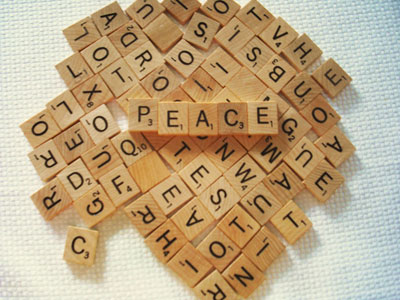All Nonfiction
- Bullying
- Books
- Academic
- Author Interviews
- Celebrity interviews
- College Articles
- College Essays
- Educator of the Year
- Heroes
- Interviews
- Memoir
- Personal Experience
- Sports
- Travel & Culture
All Opinions
- Bullying
- Current Events / Politics
- Discrimination
- Drugs / Alcohol / Smoking
- Entertainment / Celebrities
- Environment
- Love / Relationships
- Movies / Music / TV
- Pop Culture / Trends
- School / College
- Social Issues / Civics
- Spirituality / Religion
- Sports / Hobbies
All Hot Topics
- Bullying
- Community Service
- Environment
- Health
- Letters to the Editor
- Pride & Prejudice
- What Matters
- Back
Summer Guide
- Program Links
- Program Reviews
- Back
College Guide
- College Links
- College Reviews
- College Essays
- College Articles
- Back
Words Have Consequences MAG
Words. Five-letter words, three-letter words, or ten-letters words, it doesn’t matter. Words help us tell others what is on our mind and express opinions. Words can be used to compliment or to destroy another’s self-esteem. Every day millions of hurtful words are spoken. Sometimes speakers do not think mere words are dangerous, but they can create something horrible.
Paul Rusesabagina knows what words can do. In his book, Ordinary Man (which inspired the movie “Hotel Rwanda”), he said, “Peter was just a cool guy; so nice to children, very gentle, kind of a kidder, but never mean with his humor. I saw him that morning wearing a military uniform and holding a machete dripping in blood. Watching this happen in my own neighborhood was like looking up at a blue summer sky and seeing it suddenly turning to purple. The entire world had gone mad around me. What had caused this to happen? Very simple: words.” As a hotel manager, Rusesabagina saw firsthand how simple words caused the killing of 800,000 Rwandans in 1994.
First, before even discussing the background of Rwanda, it is crucial to understand what exactly genocide is. It is not a war and is not a hundred or two hundred people being killed. Genocide is violence “committed with intent to destroy, in whole or in part, a national, racial or religious group.” This definition was coined during the Nuremberg trials, which charged the leaders of the Nazis who planned and executed the mass killings of World War II. Genocide comes from the Greek word geno, meaning a race or tribe, and Latin -cide, meaning the killing of.
Rwanda is a country in central Africa the size of Maryland. In April 1994, 800,000 Rwandans were murdered in just 100 days, which means that on average five people were slaughtered every minute. Five people with a mother, a father, a home, and loved ones just like you and me. Think of it this way: a group of people equivalent to the population of Detroit, Michigan, disappeared over the span of 100 days.
This genocide was motivated by ethnic hatred. In Rwanda, people were classified into two ethnic groups, Hutus and Tutsis. For many years most Rwandans did not care which group a person had descended from. Mixed families were common. Until 1994, the majority of people did not care whether their husband, wife, friend, or business acquaintance was a Tutsi or Hutu.
The word “majority” is critical because there have been and always will be people who believe their ethnicity is superior to others, but the number of prejudiced Rwandans began small and grew from a minority to a majority over the years. Then in 1994, ethnicity was the difference between life and death. If a Rwandan was a Tutsi, he would be killed, even though there was no real difference between him and his Hutu killer. How did this start? How did enough hatred build for 800,000 people to be annihilated?
It was those five-letter words, those seven-letter words, those 11-letter words put into sentences, that the Tutsis had used over centuries to destroy the Hutus’ self-esteem. The Tutsis were always telling the Hutus that they were stupid, short, and ugly. After hearing this for many years, the Hutus became infuriated. The tide turned and Hutus started using their mouths to bring the Tutsis down, calling them degrading names such as “cockroaches.” The verbal abuse quickly escalated to physical harm – killing with machetes.
One of the biggest influences that incited the Hutus to attack their neighbors was radio broadcasts. It is important to understand that radios are omnipresent in Rwanda, like cell phones in America. The radio station Radio Télévision Libre des Mille Collines, or RTLM, had a huge influence over the people. The station became so popular that the Hutus constantly listened. RTLM referred to Tutsis as “cockroaches” and gave commands that Rusesabagina recalls “were phrased in code language that everyone understood, ‘Cut the tall trees [referring to the Tutsis]. Clean your neighborhood. Do your duty.” Rusesabagina also remembers hearing the phrase, “A cockroach cannot give birth to a butterfly.” These words degraded the Tutsis and lit a fire in many Hutus – a fire of hate and destruction. After a while, the Hutus felt so much hatred for Tutsis, in large part because of the radio broadcasts, that they snapped, and the genocide began on April 6, 1994.
Words can lead to anger and revenge, and can incite people to destroy families, lives, an entire nation. Words spoken on the radio, or in the newspaper, or in the square, can inspire hatred and violence. Before you make a rude or insulting comment about someone who is different from you – be it race, religion, ethnicity, or ability – remember that words are powerful.

Similar Articles
JOIN THE DISCUSSION
This article has 5 comments.

2 articles 0 photos 4 comments